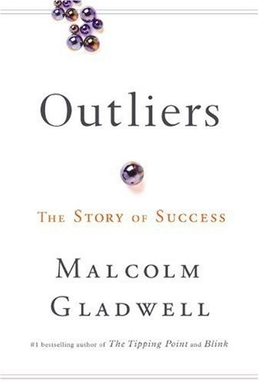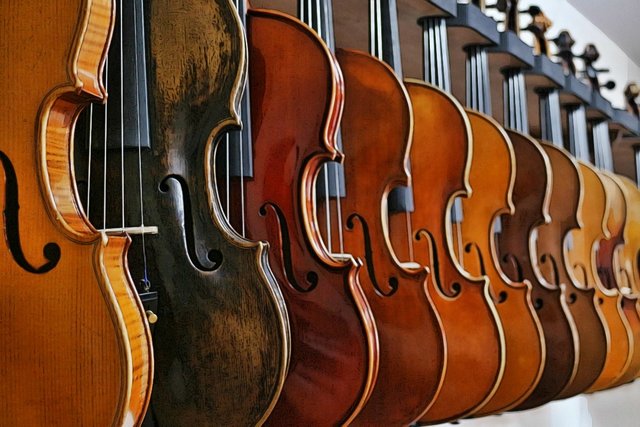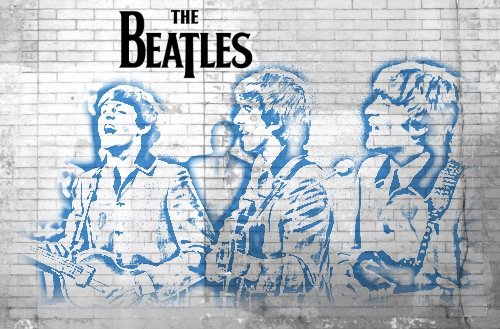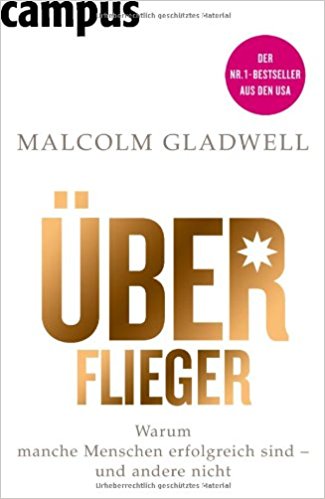What Do Great Musicians Have in Common? – Music in our Genes
Scientific research is beginning to answer this question.

It seems almost everyone has heard of the 10,000-Hour-Rule.
It is a central theme of the bestselling book, “Outliers: The Story of Success,” by Malcolm Gladwell. What exactly is the rule? To become a master in any particular field you need 10,000 hours of practice. Gladwell came up with the rule based on research by Anders Ericsson, a co-author of “Toward a General Theory of Expertise.”
 (Deutsche Version, bitte s. Unten)
(Deutsche Version, bitte s. Unten)

In terms of music, Gladwell used the example of the Beatles. As I've previously posted, the Beatles' grueling schedule in Hamburg during the years 1960 to 1964 constituted a rigorous musical apprenticeship. They themselves have acknowledged this and the impact it had on them as performers. Gladwell calculated that the Beatles spend 10,000 hour on stage in Hamburg and equated this with 10,000 hours of practicing.
The authors of the original study saw a flaw in this, and felt compelled to go public and write about it. Their piece was based on their 2016 book (Peak: Secrets from the New Science of Expertise) and was published in Salon with this headline:
“Malcolm Gladwell got us wrong: Our research was key to the 10,000-hour rule, but here’s what got oversimplified. Yes, it takes effort to be an expert, but Gladwell based the 10,000-hour rule in part on our work, and misunderstood.”

Below are the basic points they make, or you can read the full Salon article here.
The 10,000 hour rule is catchy, but it is also arbitrary. The original study focused on violin students, who by the time they had reached the age of 20 were considered very promising. The study authors ask why he used 20 years? At twenty they were promising, but nowhere close to being master violinists. They point out Gladwell could have used 18 years, or 21 years – but noted that 10,000 has a memorable catchy quality.
They point out that Gladwell misread the study, because only half of the students had accumulated 10,000 hours of practice at age of 20. Gladwell claimed that they all had.

This third point is particularly important. All practice isn't equal. The original study authors cited “deliberate practice,” which is extremely demanding. The student is constantly maneuvered out of his or her comfort zone by exercises which help to identify and overcome weaknesses.
Gladwell calculated that the Beatles played around 1,200 performances in Hamburg, amounting, by his calculation, to nearly 10,000 hours of practice. The study authors refer to a well-researched 2013 biography “Tune In,” by Mark Lewisohn, which questions Gladwell assertion and places the number of hours played at 1,100.
Moreover, the Beatles were playing the the same songs over and over. These performances are not to be confused with the deliberate practice mentioned above. Lewisohn also points out that their success was based in large part on the songwriting of Lennon and McCartney, and that wasn't being practiced on stage.
If you are interested in this topic, it is worth reading the entire article linked above. This quote from the original study author is a good takeaway:
The question of whether anyone can become an expert performer in a given field by taking part in enough designed practice is still open, and we offer some thoughts on that issue elsewhere. But there was nothing in the original study to suggest that it was so.
Gladwell did get one thing right, and it is worth repeating because it’s crucial: becoming accomplished in any field in which there is a well-established history of people working to become experts requires a tremendous amount of effort exerted over many years. It may not require exactly ten thousand hours, but it will take a lot.
From Scientific American -- Link
In the past it was generally assumed that even if someone lacked a particular genetic advantage, with diligent practice this inherent disadvantage could be overcome. One study cited in the Scientific American article not only discounts this notion, it claims the opposite is true. The study's author, Professor David Z. Hambrick, explains:
“Our results suggest that it’s the other way around. Genes become more, not less important in differentiating people as they practice…genetic potentials for skilled performance are most fully expressed and fostered by practice."
Scientific American also cites a Swedish study of 10,000 identical twins which concludes that twins with varying amounts of practice may not have significantly different musical abilities in terms of rhythm, melody, and pitch discrimination. The study authors conclude:
"Music practice may not causally influence musical ability and … genetic variation among individuals affects both ability and inclination to practice."
Thus your genes affect your ability, and along with superior ability you also have a genetic inclination to practice.
My Takeaway
How fascinating, if your genes have blessed you with a superior aptitude for music, they also bless you with a desire to practice and develop your talent. Seen another way, if you don't possess superior natural ability, your genes won't encourage you to pursue music – perhaps allowing you to find your true calling. If one harbors the dream of becoming a world class soloist in classical music, it might be wise to at least consider the implications of the results of studies cited in the Scientific American article.
Maybe, however, it might be wise to step back from the narrow perspective of focusing on technical proficiency. After all, at some point flawless technique, impeccable rhythm, great speed and dexterity, etc. might become programmable, which in theory might allow an A.I. machine virtuoso.
Fortunately, research has also demonstrated that slight imperfections and unexpected choices are part of what we enjoy about music -- perfection in music is often perceived as cold and lifeless. The ability to express genuine feelings and soulfulness, to communicate with other musicians, to improvise, and react spontaneously are qualities not so easily quantified or programmed.

There is real magic in this world, and it's music. The Beatles, working with their producer George Martin, are an ideal example of that magic. I always considered them a proof that the whole can indeed be greater than the sum of its parts. Great chemistry, fortuitous timing, and an ideal mixture of various musical temperaments, personalities, and musical strengths & weaknesses can sometimes combine in a way that produces an extraordinary result. That was unquestionably the case with the Beatles.
Imagine, for example, if Ringo Starr had been an amazingly skilled power drummer who wanted to make his presence known. That change could have had a drastic impact on the Beatles. Fortunately that wasn't the case, he was tastefully restrained and a perfect fit. A lucky combination of solid good musicians with creative vision, melodic gifts, and an artistic temperament can result in fantastic music – popular music is replete with examples. That should give us all hope.
Don't give up on playing music because you might not have been given a genetic advantage. The researchers quoted above still emphasize that despite genetic differences, practice leads to improvement. Perhaps innate musical talent can be thought of like a multiplier effect:
If you are average, your multiplier is “1” while some gifted person might have a multiplier of 1.5, and another less gifted person might have a multiplier of only 0.8. After five thousand hours of “directed practice” the average person would see real progress, reaching a level of 5,000. The gifted person would soar to 7,500, and the less gifted person would achieve 4000. All three would make progress, and depending on the type of music being made, that 4000 level might be more than enough. That's the wonderful thing about music, there is room for everyone.
Musicians often talk about the importance of finding your own musical voice and individuality. The late great Albert King is an excellent example of the power of discovering one's own “voice” on an instrument. He was left-handed, and when he taught himself to play guitar he simply played a right-handed guitar upside down. Thus the order of the strings was reserved, a mirror image. Naturally, as a result of this his technique was his own invention, and his sound and style were utterly unique. Despite this initial disadvantage, he profoundly influenced blues guitar players who came after him, most notably Stevie Ray Vaughan. You don't necessarily need to be a technical virtuoso to be great, you just need to find a way to make magic with sound.
 (Deutsche Version)
(Deutsche Version)

Was haben große Musikern gemeinsam? - Genen
Es scheint als ob fast jeder von der 10.000-Stunden-Regel gehört hat.
Es war ein zentrales Thema des Bestsellers "Überflieger: Warum manche Menschen erfolgreich sind - und andere nicht“ von Malcolm Gladwell. Was genau ist die Regel? Um ein Meister auf einem bestimmten Gebiet zu werden, braucht man 10.000 Stunden Übung. Gladwell hatte die Regel auf der Grundlage von Recherchen von Anders Ericsson, einem Co-Autor von "Hin zu einer allgemeinen Theorie der Expertise" abgeleitet.

Was die Musik angeht, benutzte Gladwell das Beispiel der Beatles. Wie ich bereits auf Steemit geschrieben habe, waren die Auftritte der Beatles in Hamburg in den Jahren 1960 bis 1964 eine strenge musikalische Ausbildung. Sie selbst haben dies bestätigt und sie haben erkannt, welchen Einfluss es auf sie als Performer hatte. Gladwell berechnete, dass die Beatles 10.000 Stunden auf der Bühne in Hamburg verbrachten und hat dies mit 10.000 Stunden Training gleichgesetzt.
Die Autoren der ursprünglichen Studie, auf die Gladwell Bezug nahm, sahen darin einen Fehler. Sie fühlten sich gezwungen, an die Öffentlichkeit zu gehen und darüber zu schreiben. Ihr Beitrag basierte auf ihrem Buch 2016 (Peak: Secrets from the New Science of Expertise) und wurde im Salon mit dieser Überschrift veröffentlicht:
"Malcolm Gladwell hat uns falsch verstanden: Unsere Forschung war der Schlüssel zur 10.000-Stunden-Regel, wurde aber zu stark vereinfacht"
"Ja, es braucht Anstrengung, um ein Experte zu sein. Aber Gladwells 10.000-Stunden-Regel basiert teilweise auf ein Missverständnis unserer Arbeit"
Hier sind die grundlegenden Punkte, die sie machten, oder man kann den ganzen Artikel hier lesen.Englisch
Die 10.000-Stunden-Regel ist einprägsam, aber auch etwas willkürlich. Die ursprüngliche Studie konzentrierte sich auf Geigenschüler, die bis zum Alter von 20 Jahren als vielversprechend galten. Die Studienautoren fragen, warum hat Gladwell 20 Jahre verwendet? Mit zwanzig waren sie vielversprechend, aber nicht annähernd Meisterhaft. Sie weisen darauf hin, Gladwell hätte 18 Jahre oder 21 Jahre verwenden können - haben aber festgestellt, dass 10.000 eine unvergessliche Ohrwurm-Qualität hat.
Sie weisen darauf hin, dass Gladwell ebenfalls das Studium falsch gelesen habe, weil nur die Hälfte der Studenten im Alter von 20 Jahren 10.000 Stunden Praxis gesammelt haben. Gladwell behauptete, dass sie das alle hatten.

Dieser dritte Punkt ist besonders wichtig. Jede Übung ist nicht gleich. Die ursprünglichen Autoren der Studie zitierten "absichtliche Praxis", die extrem anspruchsvoll ist. Der Student wird ständig durch Übungen aus seiner Komfortzone manövriert, was hilft, Schwächen zu erkennen und zu überwinden.
Gladwell errechnete, dass die Beatles in Hamburg etwa 1.200 Vorstellungen spielten, was nach seiner Berechnung zu fast 10.000 Stunden Übung führte. Die Autoren der Studie verweisen auf eine gut recherchierte Biographie "Tune In" von Mark Lewisohn aus dem Jahr 2013, der Gladwells Behauptung in Frage stellt und die Anzahl der Stunden bei 1.100 setzt.
Außerdem spielten die Beatles immer wieder dieselben Lieder. Diese Aufführungen sind nicht mit der oben genannten absichtlichen Praxis zu verwechseln. Lewisohn weist auch darauf hin, dass ihr Erfolg zu einem großen Teil auf dem Songwriting von Lennon und McCartney basierte, und das wurde nicht auf der Bühne geübt.
Wenn man an diesem Thema interessiert ist, lohnt es sich, den verlinkten Artikel zu lesen. Dieses Zitat vom ursprünglichen Autor der Studie bringt es auf den Punkt:
Die Frage, ob jemand in einem bestimmten Bereich ein Experte werden kann, indem er an einer ausreichend gestalteten Praxis teilnimmt, ist immer noch offen, und wir bieten einige Gedanken zu diesem Thema an anderer Stelle. Aber es gab in der ursprünglichen Studie nichts, was darauf hinwies, dass es so war.
Gladwell hat aber eine Sache richtig, und es ist es wert, das zu wiederholen, weil es entscheidend ist: Auf jedem Gebiet, in dem es eine gut etablierte Geschichte von Leuten gibt, die arbeiten, um Experten zu werden, wird eine enorme Anstrengung über viele Jahre hinweg gefordert. Es braucht nicht genau zehntausend Stunden zu sein, aber es wird viel Zeit kosten.
„Scientific American“ Was haben große Musiker gemeinsam? DNA
Neue Studie zeigt, dass es ein Mythos ist, dass viel Übung notwendigerweise Größe bringen wird link
In der Vergangenheit wurde allgemein angenommen, dass selbst wenn jemand ein bestimmter genetischer Vorteil fehlt, dieser inhärente Nachteil mit sorgfältiger Übung überwunden werden könnte. Eine Studie, die im Scientific American Artikel zitiert wird, hebt nicht nur diese Idee auf, sondern behauptet, dass das Gegenteil der Fall ist. Der Autor der Studie, Professor David Z. Hambrick, erklärt:
"Unsere Ergebnisse deuten darauf hin, dass es andersherum ist. Gene werden mehr, nicht weniger wichtig bei der Differenzierung von Menschen, während sie üben ... genetische Potenziale für geschickte Leistung werden am umfassendsten realisiert und durch Übung gefördert. "
Scientific American zitiert auch eine schwedische Studie von 10.000 eineiigen Zwillingen, die zu dem Schluss kommt, dass Zwillinge mit unterschiedlichem Übungsumfang keine signifikant unterschiedlichen musikalischen Fähigkeiten in Bezug auf Rhythmus, Melodie und Tonhöhenunterscheidung haben. Die Schlussfolgerung der Autoren der Studie:
"Das üben von Musik wird möglicherweise die musikalischen Fähigkeiten nicht kausal beeinflussen können und ... genetische Variation unter Individuen beeinflusst sowohl die Fähigkeit als auch die Neigung zu üben."
Also deine Gene haben einen Einfluss auf deine Fähigkeit, und mit erhöhter Fähigkeit hast du auch eine genetische Neigung zu üben.
Meine Überlegungen
Wie faszinierend, wenn deine Gene dich mit einer Begabung für Musik gesegnet haben, segnen sie dich auch mit dem Wunsch, dein Talent zu üben und zu entwickeln. Anders ausgedrückt, wenn du keine überragenden natürlichen Fähigkeiten besitzt, werden deine Gene dich nicht ermutigen, Musik zu betreiben – was dir vielleicht dadurch erlaubt, deine wahre Berufung zu finden. Wenn man den Traum hat, ein Weltklasse-Solist in der klassischen Musik zu werden, könnte es sinnvoll sein, zumindest die Implikationen der Ergebnisse von Studien zu berücksichtigen, die im Scientific American-Artikel zitiert werden.
Vielleicht ist es jedoch sinnvoll, von der engen Perspektive der technischen Kompetenz Abstand zu nehmen. Eine einwandfreie Technik, genauer Rhythmus, große Geschicklichkeit usw. könnten irgendwann programmierbar werden, was theoretisch eine A.I. Maschine als Virtuosen ermöglichen könnte.
Glücklicherweise hat die Forschung auch gezeigt, dass kleine Unvollkommenheiten und unerwartete Entscheidungen ein Teil dessen sind, was wir an Musik lieben - Perfektion in der Musik wird oft als kalt und leblos wahrgenommen. Die Fähigkeit, echte Gefühle und Lebensfreude auszudrücken, mit anderen Musikern zu kommunizieren, zu improvisieren und spontan zu reagieren, sind Qualitäten, die nicht so leicht quantifiziert oder programmiert werden können.
Es gibt wirklich echte Magie in dieser Welt -- es ist die Musik.

Die Beatles, mit ihrem Produzenten George Martin, sind ein ideales Beispiel für diese Magie. Ich habe sie immer als Beweis dafür betrachtet, dass das Ganze tatsächlich größer sein kann als die Summe seiner Teile. Harmonische Wellenlänge, glückliches Timing und eine ideale Mischung verschiedener musikalischer Temperamente, Persönlichkeiten, sowie musikalischer Stärken und Schwächen können manchmal zu einem außergewöhnlichen Ergebnis führen. Das war fraglos bei den Beatles der Fall.
Stell dir zum Beispiel vor, wenn Ringo Starr ein unglaublich fähiger Power Drummer gewesen wäre, der seine Präsenz bekannt machen wollte. Diese Veränderung hätte sich drastisch auf die Beatles auswirken können. Zum Glück war das nicht der Fall, er war geschmackvoll und zurückhaltend und das passte perfekt. Eine glückliche Kombination von soliden guten Musikern mit kreativen Visionen, melodischer Begabung und einem künstlerischen Temperament kann zu fantastischer Musik führen - populäre Musik ist voll von Beispielen. Das sollte uns alle Hoffnung geben.
Gib nicht auf, Musik zu spielen, weil du vielleicht keinen genetischen Vorteil hast. Die oben zitierten Forscher betonen noch, dass die Praxis trotz genetischer Unterschiede zu Verbesserungen führt. Vielleicht kann angeborenes musikalisches Talent wie ein Multiplikator-Effekt gedacht werden:
Wenn man durchschnittlich ist, ist der Multiplikator "1", während eine begabte Person einen Multiplikator von 1,5 und eine andere weniger begabte Person einen Multiplikator von nur 0,8 haben könnte. Nach fünftausend Stunden "gelenkter Praxis" würde die durchschnittliche Person einen wirklichen Fortschritt sehen und ein Niveau von 5.000 erreichen. Die begabte Person würde auf 7500 steigen, und die weniger begabte Person würde 4000 erreichen.
Alle drei würden Fortschritte machen, und abhängig von der Art der Musik, die gemacht wird, könnte diese 4000-Stufe mehr als genug sein. Das ist das Schöne an der Musik, hier ist Platz für alle.
Musiker sprechen oft darüber, wie wichtig es sei, eine eigene musikalische „Voice“ und Individualität zu finden. Der verstorbene Albert King ist ein hervorragendes Beispiel dafür was passiert, wenn jemand die Kraft der eigenen "Voice" auf einem Instrument entdeckt. Er war Linkshänder und als er sich selbst beibrachte Gitarre zu spielen, spielte er einfach eine Rechtshänder-Gitarre auf dem Kopf. So wurde die Reihenfolge der Strings umgekehrt, ein Spiegelbild.
Natürlich war seine Technik seine eigene Erfindung, und sein Klang und Stil waren absolut einzigartig. Trotz dieser anfänglichen Benachteiligung beeinflusste er maßgeblich Blues-Gitarristen, die nach ihm kamen, vor allem Stevie Ray Vaughan. Du musst nicht unbedingt ein technischer Virtuose sein, um großartig zu sein, du musst nur einen Weg finden, Magie mit Sound zu kreieren.
Thanks for stopping by! You can visit my main page for more
Lead Photo from Wikipedia with effects by @roused
Book covers from Amazon
Violins pxhere.com free use
Beatles from Wikipedia with Very heavy effects by @roused
German translation specially for Steemit by @roused
Scientific American Article
Salon Article.


--------Having trouble reading? Click (R) on image to view in full screen---------
Wieder ein richtig toller, interessanter Beitrag ;-) Danke dafür!
Some people have it and some people don't. I am self taught at the guitar and worked hard over years to play a small repertoire. My son picked up the guitar a few years ago and he can play anything he hears!
Great for him and sad for me!
I know exactly what you mean, it's the same for me. That's great your son was blessed with that ability, it is a true gift.
In the post prior to this one, I interviewed a session guitarist who without any instruction was able to listen to Chet Atkins solos on the radio as a 10 year old and easily pick them out and play them. Hard to imagine.
That's great!
I can pretty much do that, too--but I'm 34 ;)
This really nice. You have done a great work. Music is the future